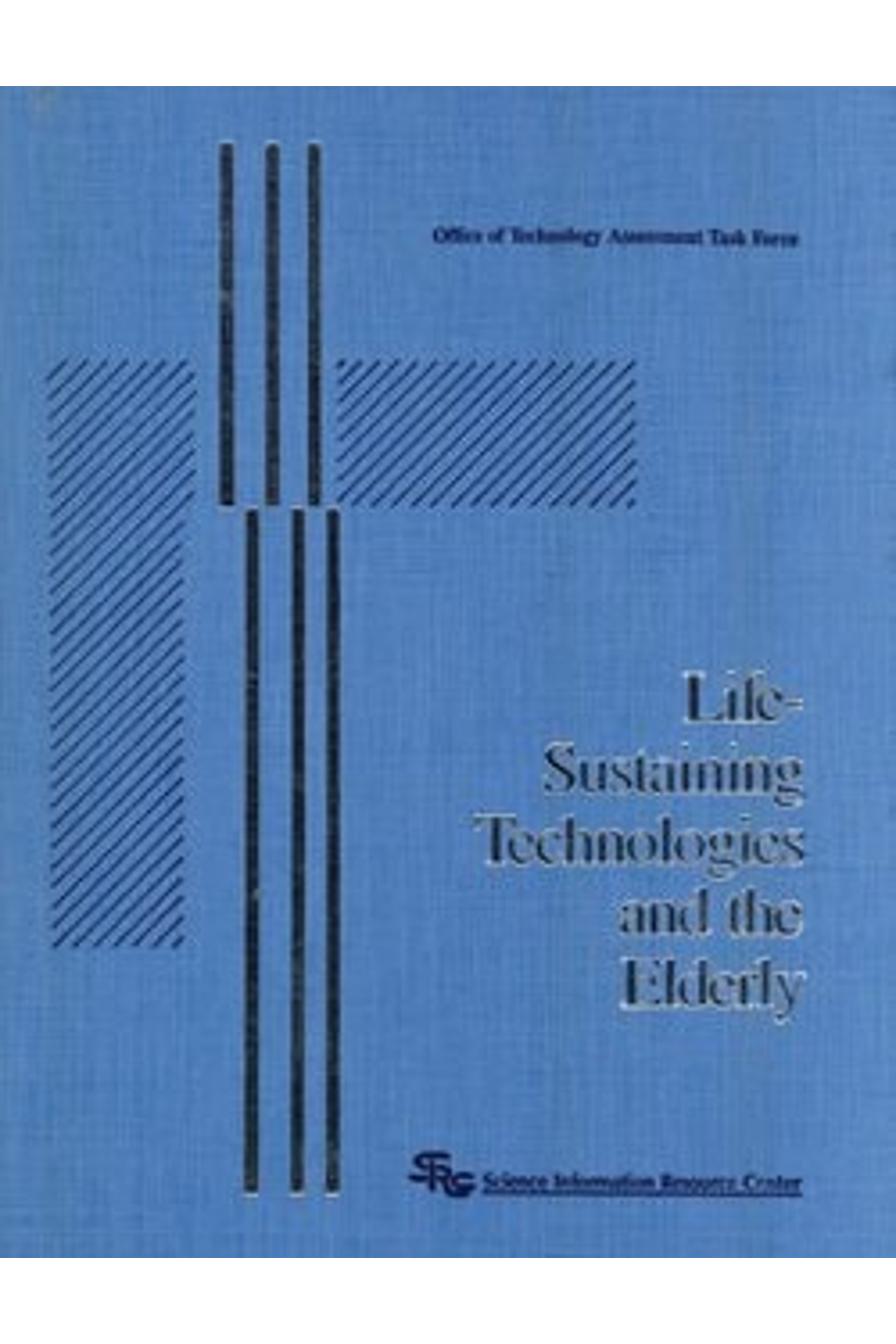Explore the groundbreaking 1988 study, “Life-Sustaining Technologies and the Elderly,” a crucial hardbound volume from Lippincott Williams & Wilkins, originating from the Office of Technology Assessment Task Force. This landmark report, led by Claire W. Maklan, Katie Maslow, and Robert A. Harootyan, dives deep into the ethical, social, and economic implications of life-extending technologies on our aging population. Included is the full OTA Special Report, providing invaluable insight into topics like patient autonomy, quality of life, resource allocation, and the impact on the healthcare system. A must-read for healthcare professionals, policymakers, and anyone grappling with the complex challenges and choices surrounding aging and medical technology. This edition includes bibliographical references and an index for thorough research.
Life-Sustaining Technologies and the Elderly (Health and Life Science Books)
13,11 $
In stock
Description
Office Of Technology Assessment Task Force ; Project Directors, Claire W. Maklan, Katie Maslow, Robert A. Harootyan ; Special Contributors, Nancy B. Cummings, Kathryn S. Aultman, Lisa J. Raines. Includes The Full Text Of The Office Of Technology Assessment Special Report Entitled Life-sustaining Technologies And The Elderly. Includes Bibliographical References And Index.
**Delve into the Complexities of Aging and Life-Sustaining Technology: A Landmark Study** Explore the intersection of healthcare, ethics, and aging with "Life-Sustaining Technologies and the Elderly (Health and Life Science Books)," an authorized hardbound edition published in 1988 by Lippincott Williams & Wilkins. This comprehensive volume, stemming from the Office of Technology Assessment (OTA) Task Force, offers a crucial perspective on the challenges and opportunities presented by life-extending medical advancements in the context of an aging population. This seminal work, crafted under the guidance of Project Directors Claire W. Maklan, Katie Maslow, and Robert A. Harootyan, with significant contributions from Nancy B. Cummings, Kathryn S. Aultman, and Lisa J. Raines, addresses a critical societal issue that continues to resonate today. It includes the full text of the Office of Technology Assessment Special Report entitled "Life-sustaining Technologies And The Elderly." The book meticulously examines the ethical, social, and economic implications of utilizing medical technologies to prolong life, specifically focusing on their impact on the elderly. Within its 459 pages, the book explores a wide array of topics, including: * **The Ethical Dilemmas:** Navigating the complex moral landscape surrounding the use of life-sustaining technologies, considering patient autonomy, quality of life, and resource allocation. The book is widely cited in medical journals concerning the topic of medical ethics for end of life care and decisions. * **The Social Impact:** Analyzing how these technologies affect family dynamics, caregiver burdens, and the overall healthcare system. It looks at the role of palliative care and the burdens on caregivers. * **Economic Considerations:** Evaluating the costs associated with life-sustaining treatments and their implications for healthcare policy and resource management. It examines the impact on public finances and the need for careful consideration of the value for money. * **The Role of Technology:** Providing an in-depth look at specific technologies, such as mechanical ventilation, dialysis, and artificial nutrition, and their impact on the lives of elderly patients. It offers an early view into emerging technologies of the time. * **Policy Recommendations:** Offering insights and suggestions for policymakers, healthcare professionals, and families to navigate the challenges of an aging population and the increasing availability of life-sustaining technologies. The report continues to be relevant for policy recommendations. This book is a valuable resource for: * **Healthcare Professionals:** Physicians, nurses, social workers, and other healthcare providers working with elderly patients and their families. * **Policymakers:** Individuals involved in shaping healthcare policy and regulations. * **Ethicists:** Scholars and practitioners interested in the ethical implications of medical technology and aging. * **Sociologists:** Those studying the social dynamics of aging, healthcare, and technology. * **Students:** Individuals pursuing degrees in medicine, public health, social work, gerontology, and related fields. "Life-Sustaining Technologies and the Elderly" provides a foundational understanding of a critical issue that remains highly relevant in today's rapidly evolving healthcare landscape. The book includes bibliographical references and an index, providing valuable resources for further research. A must-have for anyone seeking a comprehensive understanding of the intersection of technology, aging, and ethical considerations in healthcare.
Additional information
| Authors | |
|---|---|
| Binding | |
| Condition | |
| ISBN-10 | 0397530242 |
| ISBN-13 | 9780397530243 |
| Language | |
| Pages | 459 |
| Publisher | |
| Year published | |
| Weight | 4000 |
| Edition | Authorized hardbound ed |
SKU: G-9780397530243-3
Categories: Medical Books, Politics & Social Sciences, Social Sciences, Sociology
Related products
-
Teacher’s Pet
23,90 $
- Additional information
- Currencies
- USD – United States dollar
- EUR – Euro
- GBP – Pound sterling
- CNY – Chinese yuan
- BRL – Brazilian real
- MXN – Mexican peso
- JPY – Japanese yen
- PHP – Philippine peso
- THB – Thai baht
- PLN – Polish złoty
- CAD – Canadian dollar
- MYR – Malaysian ringgit
- AUD – Australian dollar
- TWD – New Taiwan dollar
- CZK – Czech koruna
- SEK – Swedish krona
- HUF – Hungarian forint
- ILS – Israeli new shekel
- CHF – Swiss franc
- HKD – Hong Kong dollar
- DKK – Danish krone
- SGD – Singapore dollar
- NOK – Norwegian krone
- NZD – New Zealand dollar





